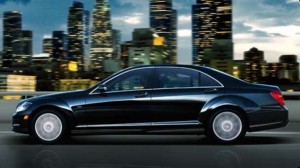By just about any metric you choose – from fuel economy to long-term reliability – today’s automotive offerings continue to get better and better. But there are still a few clunkers.
And Forbes magazine has come up with a list of what it claims are the worst cars on the road, using data from six key studies – covering matters such as safety and cost-of-ownership.
The list includes a few surprises, such as the vaunted Mercedes-Benz S-Class, as well as some poorly-reviewed offerings, notably the Smart fortwo. But Forbes reserves the brunt of its wrath for Detroit, which overwhelmingly dominates the list with models like the Cadillac Escalade.
The significant exception is Ford, which didn’t place a single model on the list of dubious honor.
Four GM products made the list, three of them Chevrolets, including the Tahoe Hybrid SUV, the little Aveo and the Colorado pickup. But singled out for particular criticism was the Cadillac Escalade.
Forbes based its rankings on six Consumer Reports studies that included Highest Cost of Ownership, Best and Worst Values Report, Worst Safety Performance Survey and the Most Reliable Cars Report. The base model of Caddy’s bling-bling SUV fared poorly on a number of those.
Luxury vehicles are at a disadvantage in some of the studies because of their high cost of operation – which helped the Mercedes S-Class land on the Forbes list even though it often appears on lists of the most desirable cars on the road.
Chrysler, which has scored poorly in most Consumer Reports studies, didn’t fare much better in the Forbes analysis, with its Town and Country minivan among five models the magazine dissed. The others are the Jeep Wrangler and Liberty, and the Dodge brand’s Nitro and Dakota model. (The T&C minivan Forbes took aim at was the old 2010, and not the latest, 2011 remake.)
While there will likely be some debate over the various choices, few would contest the inclusion of the Smart 2-seater, which has seen sales collapse since its introduction into the U.S. market in mid-2008. The Nissan Titan might not find many willing to defend it, either. The big pickup has failed to generate much enthusiasm or dislodge the domestic competition dominating the full-size American pickup market.

